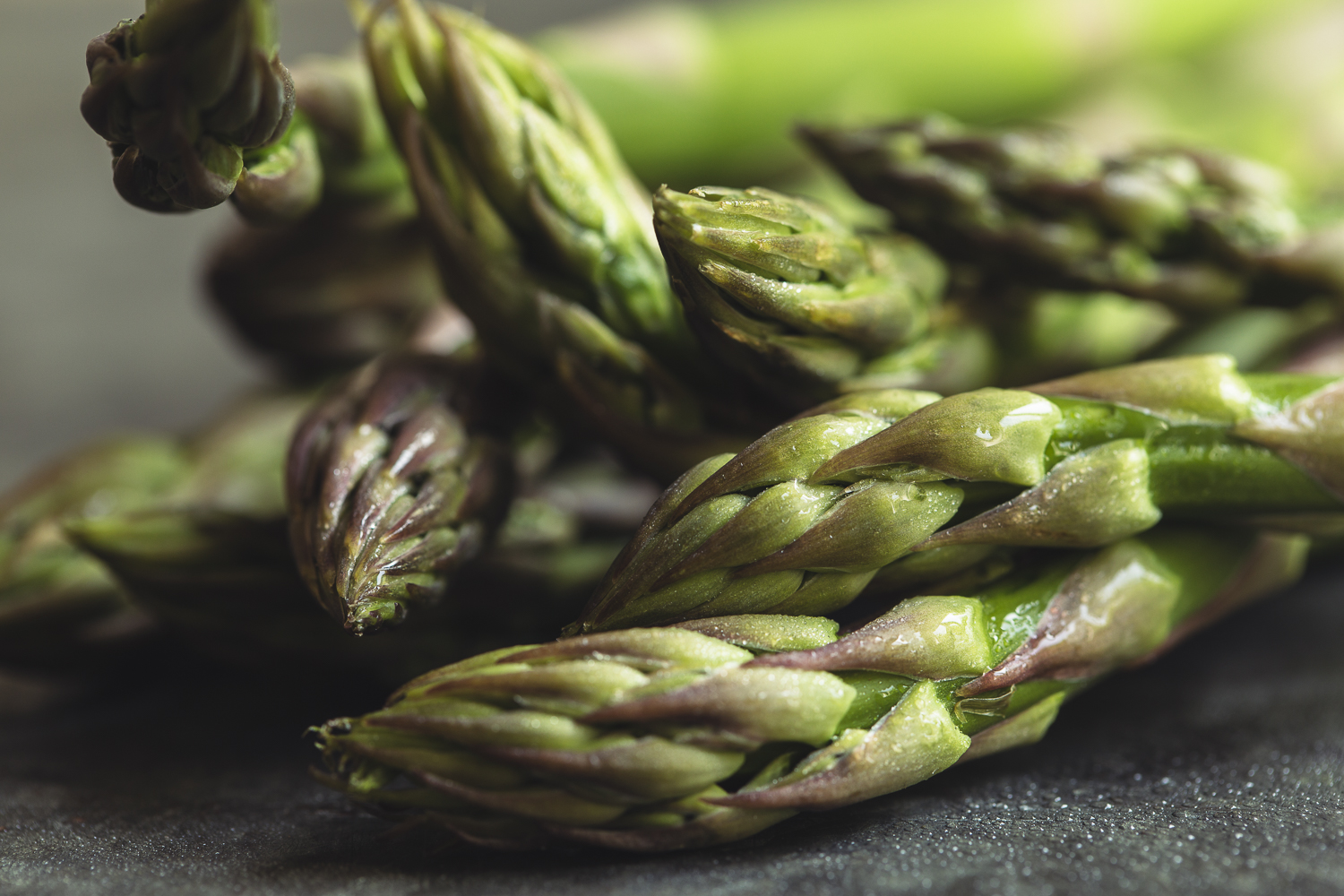The first of this season’s asparagus has been fantastic so far – the yields have been good, and we’ve been picking every day up until this week, when the soil temperature dropped and the plants stopped growing. We’ve also had the first rain for weeks this morning, which I’m really happy about as it’s been very dry.
My fourth-generation farm is in Cambridgeshire, in the heart of the Fens. It’s one of the driest areas of the country – which, luckily, is fine for asparagus as it likes dry soil. We specialise in the slightly ‘different’ crops, like asparagus, rhubarb and artichokes; that’s our niche. When I started converting to organic in 2006, I decided it would only work for us if we started with crops that weren’t readily available in the UK, so that’s the market we aimed at.
With asparagus, you plant it as a crown and then it’s in the ground for two years before you pick anything – something people don’t realise. Our planting is staggered, so we usually end up needing to plant in some fields every other year. We hope to get around eight to ten harvests from one crop. When the crop gets a bit older it becomes financially unviable and that’s when we start taking it out.
After planting, we cover the asparagus with a compostable film made from non-GM starch, which I developed with a Dutch company and helps stop weeds coming through. When I said I was going to grow asparagus organically, people said I was mad, because of the pressure of weed control. It is notoriously a very difficult crop to grow organically, but that film has really helped. We don’t have much of a pest problem here, there is an asparagus beetle, but we’ve got a good population of spiders to keep that under control. We start picking when the spears are about the length of a basic kitchen knife.
Most of our crops started a couple of weeks ago, so we’ll be picking something every day from now until mid-November, which is a nice thought! Asparagus, artichokes and rhubarb are all perennial, meaning you plant them once and that’s it. Personally, I love perennials. You’ve just got to get your establishment right; if it’s not successful you’re stuck with it – I think that’s what puts some people off.















Thank you Clive Martin. We live in Cambridgeshire and are so heartened to read about one of our favourite vegetables being grown here with so much care and love. We’ve been customers of Riverford for over 10 years and its wonderful to be in touch with those who grow our food. Thank you.
That was an interesting read. I also live in Cambs and have a small plot of organic asparagus in our garden and every year feel rather soul destroyed by the amount of weeding I need to do. I wonder if the compostable film is available to the public anywhere? I couldn’t find any on a Google Search. I also wonder how long it lasts before it biodegrades and how it works on an established plot where spears pop up all over the place?
Hi Cazzalepin, it takes about 6 months to degrade.. Clive developed that film specifically for his operations so unfortunately it is not commercially available.
Just coming back from a Dutch break (fortunately it was white asparagus season ) and reading this article I have to ask the question ‘why are there no white asparagus growing in the UK’?
Hi Ria, the delicate, slightly bitter taste of white asparagus is more popular in the rest of Europe but rarely grown in the UK. As the plants need to be grown in the dark, the process of piling up the soil and harvesting them is much more labour intensive, making them more expensive.. The longer cooking time and need to peel it also means green asparagus has stayed more popular in the UK. Soil type is important too – some regions of Germany have special very sandy soils that are perfect for this type of growing, and Riverford will be stocking some at the beginning of June.